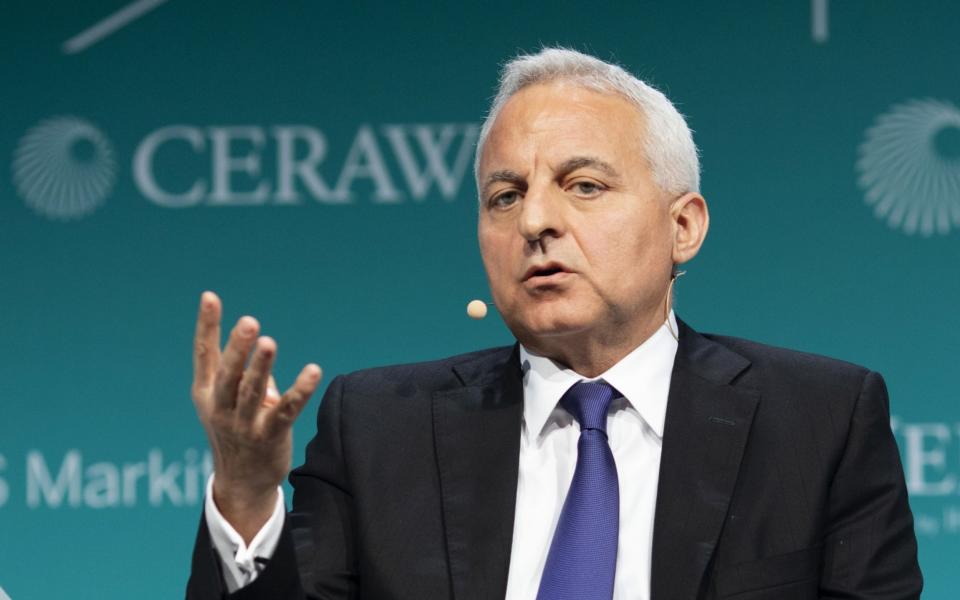[ad_1]
Rolls-Royce will sell up to £1.5bn of businesses as part of chief executive Tufan Erginbilgic’s plan to quadruple profits at the jet engine maker.
Potential assets up for sale include the company’s electric plane and flying taxi divisions, as Mr Erginbilgic wants profits to hit a minimum of £2.5bn by 2027.
The chief executive has been on a mission to overhaul the business since taking over in January, last month announcing plans to cut up to 2,500 jobs as he strives to make annual savings of £500m.
However, further plans were laid out to investors on Tuesday, as Rolls-Royce said it is weighing outside investment in its power generation and battery storage divisions.

The manufacturing giant said it will also re-enter the market for engines for smaller “narrowbody” passenger jets, such as the Airbus A320 and Boeing 737, which ferry passengers around Europe.
It stopped making these engines in 2011 but it will now seek partners to resume manufacturing.
In its defence division, which makes jet engines for fighter jets and power systems for nuclear submarines, it wants to use its atomic power to develop more products for civilian and defence.
Mr Erginbilgic, a former BP executive, said: “We are setting compelling and achievable financial targets for the mid-term which will take Rolls-Royce significantly beyond any previous financial performance.
“This will benefit not just our shareholders but our people, customers and partners. We are building ‘one Rolls-Royce’.”
Shares in Rolls-Royce rose by 7pc in early Tuesday trading, following a rise of almost 200pc in the past year.
When he took the reins in January, there was speculation that he would sell the company’s power business, which makes diesel-burning engines for electricity generators, trains and ships.
The speculation intensified in May when he said the unit had been “grossly mismanaged”, although he has now confirmed it will remain in-house, albeit with outside investment.
The company has already received external investment for its nuclear power business, which seeks to make modular power plants more cheaply than traditional power stations.
[ad_2]